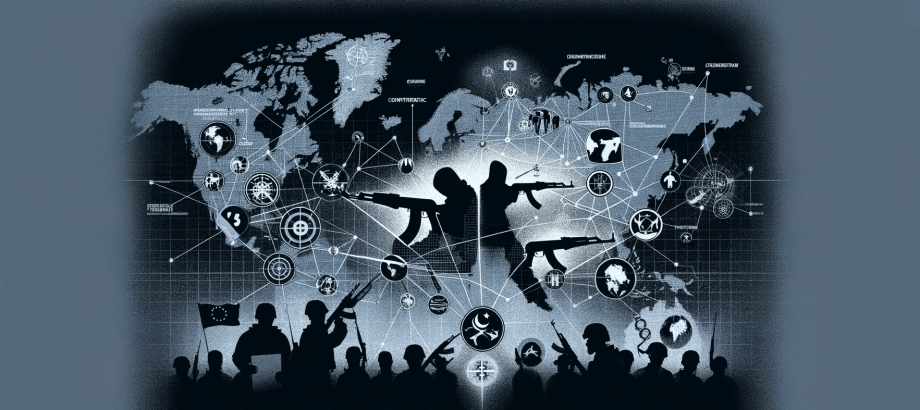Event
GLOBSEC Forum 2023 Side Event on Right-Wing Extremism

On the sidelines of the GLOBSEC 2023 Bratislava Forum, GLOBSEC hosted a closed-door event in the framework of the Counter-Extremism Project. The scope of the recently concluded project is to analyse the phenomenon of the right-wing extremist groups in Slovakia, Czechia, Hungary, and Bulgaria including their financial networks. The takeaways of the discussion were the following:
Bulgaria:
- The radical right in Bulgaria can be divided into four strands: post-Communist alternatives for Communists, nativist groups, followers of Western subcultures, and paramilitary organizations.
- Approximately 10-12% of the population is willing to vote for radical right parties and groups in Bulgarian parliamentary elections, with fluctuating trends.
- The radical right in Bulgaria consists of two main groups: mainstream nationalists, who actively participate in political life and often have a pro-EU stance, and far-right radicals, who have narrow support and question the status quo while displaying xenophobic and racist tendencies.
- The Revival Party is a notable example of a pro-Russian influenced group that has recently shifted to being more anti-American, anti-colonialist, and against the European Union.
Hungary:
- The extreme right scene in Hungary has a symbiotic relationship with the government, starting around 2014-2015 during the migration crisis.
- The government's emphasis on anti-LGBTQ sentiment and accommodating extreme right views, such as building a wall and linking homosexuality to pedophilia, has been embedded into pro-Russian and anti-EU sentiments.
- The government and the extreme right reinforce each other. The extreme right claims to influence government narratives, while the government uses these groups to further authoritarianism.
- Following the rise of Fidesz to power in 2010, the extreme right in Hungary posed a threat to the government, leading to a reduced emphasis on political violence due to certain organizations having relationships with the police.
- Despite efforts to strengthen hate crime protocols and focus on international terrorism, organizing events by the extreme right remains difficult to stop, as some actors within the system allow them to continue organizing where they shouldn't.
Czech Republic:
- Right-wing extremism in the Czech Republic has seen a continuation of traditional ideologies rooted in violence from the 1990s, including violent attacks against political opponents such as the LGBT community.
- The root causes of right-wing extremist movements have decreased compared to the 1990s and 2000s, with movements focusing on anti-migrant sentiments and the rise of a red-brown movement with violent fringes raising concerns about foreign interference, particularly from Russia.
- Socio-economic factors have some impact on the success of right-wing extremist movements, but the mobilization of violent right-wing extremists seems to be influenced more by culture wars and geopolitical actors than purely socio-economic factors.
- International actors can respond to the internationalization of right-wing extremist groups by supporting regional target-centric cooperation between governmental security institutions in Central Europe and promoting trans-regional cooperation. A multi-agency approach and collaboration with loyal NGOs and academic spheres are also recommended.
Slovakia:
- Right-wing extremism in Slovakia is deeply rooted in historical experiences, including World War II and the socialist era, and shares common themes with neighboring countries like Hungary, Czech Republic, and Bulgaria.
- Over the past 15 years, Slovakia has witnessed various iterations of the same party, driven by motivations such as lack of development, rising poverty, and social exclusion, which contribute to citizens being susceptible to extremist ideologies.
- Slovak narratives within right-wing extremism focus on anti-Roma sentiment, migration, Islamophobia, anti-establishment sentiment, and the fight against corruption, while during the COVID-19 pandemic, anti-restrictions.
- The Slovak party's main contribution lies in promoting "traditional family values," although they have been losing seats in government. Despite this, electoral successes provide them with legal funds that can be used to further their agendas.
- Slovakia also faces challenges in effectively prosecuting extremist activities and addressing online content in a timely manner.
- The forecast for right-wing extremism in Slovakia includes a transformation due to political and generational changes, the continuation of lone-wolf attacks, self-radicalization through online activities, and the infiltration of extremist ideas into various professions, including the police, army, and law profession.